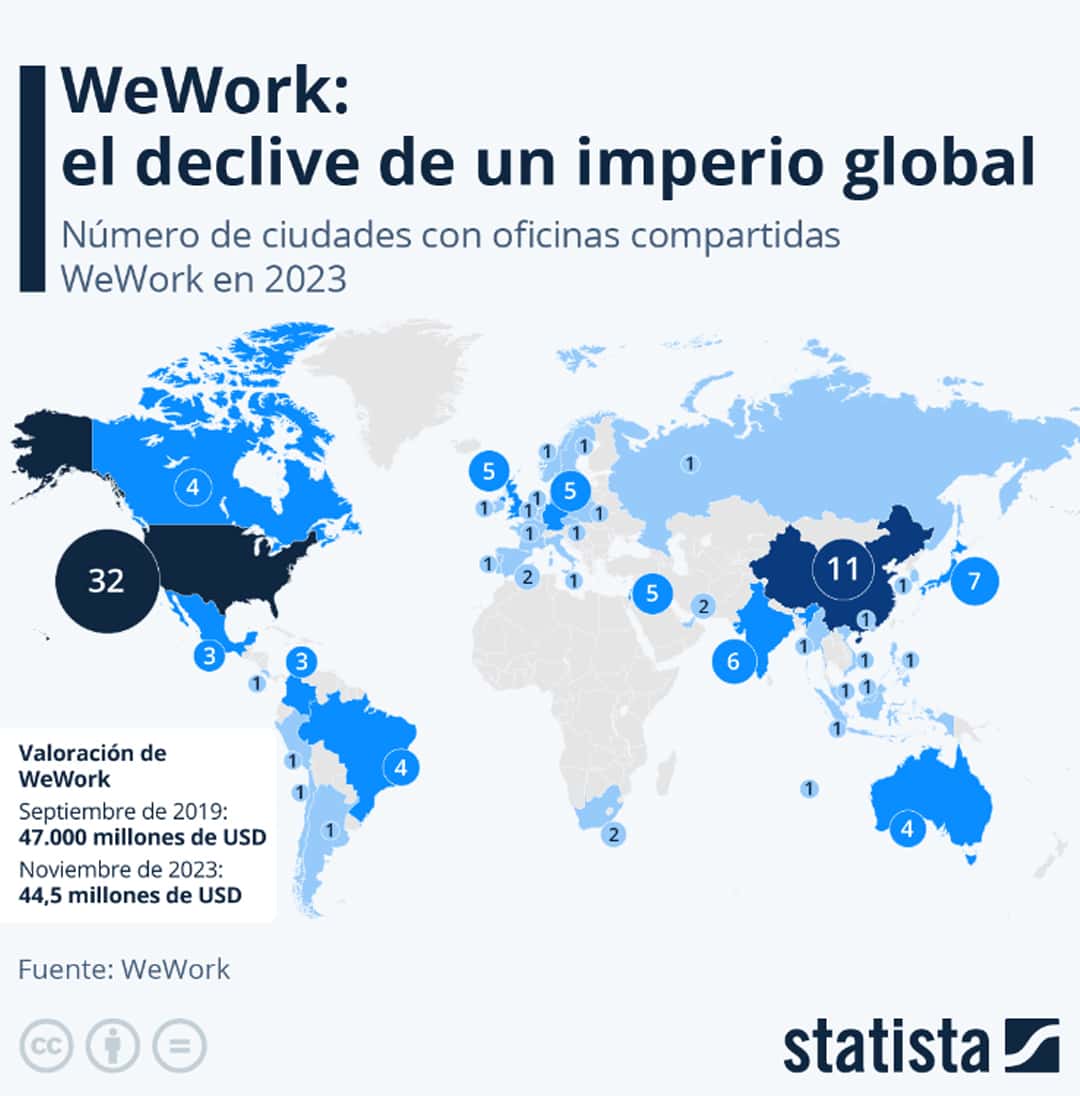WeWork, the well-known office rental and coworking space company founded in 2010 by Adam Neumann and Miguel McKelvey and once valued at nearly USD $47 billion, announced its bankruptcy last Tuesday, November 7th. This news comes after it was revealed last week that the company would file for Chapter 11 bankruptcy in the United States in New Jersey, a decision confirmed after failing to make interest payments on a debt of USD $18.656 billion and assets of USD $15.063 billion.
WeWork has initiated a comprehensive reorganization process to strengthen its capital structure and improve its finances, performance, and positioning for future success. The company has reached a “Restructuring Support Agreement” with creditors representing about 92% of its secured bonds as part of this restructuring. This agreement aims to reduce existing debt and expedite the restructuring process.
WeWork plans to rationalize its commercial lease portfolio to focus on business continuity. Additionally, the company intends to file recognition proceedings in Canada under Part IV of the Companies Creditors Arrangement Act. It’s important to note that WeWork’s locations outside the United States and Canada and its global franchises are not included in this process.
David Tolley, appointed CEO of WeWork in October, expressed optimism about the company’s future, stating that WeWork has a solid foundation and a dynamic business with a promising future. Tolley emphasized that this is the time for the company to aggressively address its legacy leases and significantly improve its balance sheet. According to Tolley, WeWork has defined a new category of work, and these steps are essential to maintain its leadership in the flexible work sector.
“Now is the time to drive the future by aggressively addressing our legacy leases and dramatically improving our balance sheet. We’ve defined a new category of work, and these steps will enable us to continue being the global leader in flexible work. I am deeply grateful for the support of our financial stakeholders as we work together to strengthen our capital structure and accelerate this process through the Restructuring Support Agreement. We remain committed to investing in our products, services, and world-class employee team to support our community.”
WeWork ensures that it will continue to provide services to its members and expects to have the financial liquidity necessary to execute these procedures and maintain its operations as usual. This restructuring process marks a turning point for the company, seeking to overcome its economic challenges and reaffirm its position in the industry of shared and flexible workspaces, adapting to the changing market dynamics and the needs of its clients.

Currently, WeWork’s bankruptcy process is limited to the United States and Canada, but it represents a significant fall for what was once one of the most promising startups, considered a unicorn until recently. According to information provided by WeWork, the company operates in 119 cities across nearly 40 countries. In the United States, WeWork has the largest presence with offices in 32 cities, while China is second, with coworking spaces in eleven cities. The company was valued at USD $44.5 million as of November 6th, the day its stock trading was halted.






